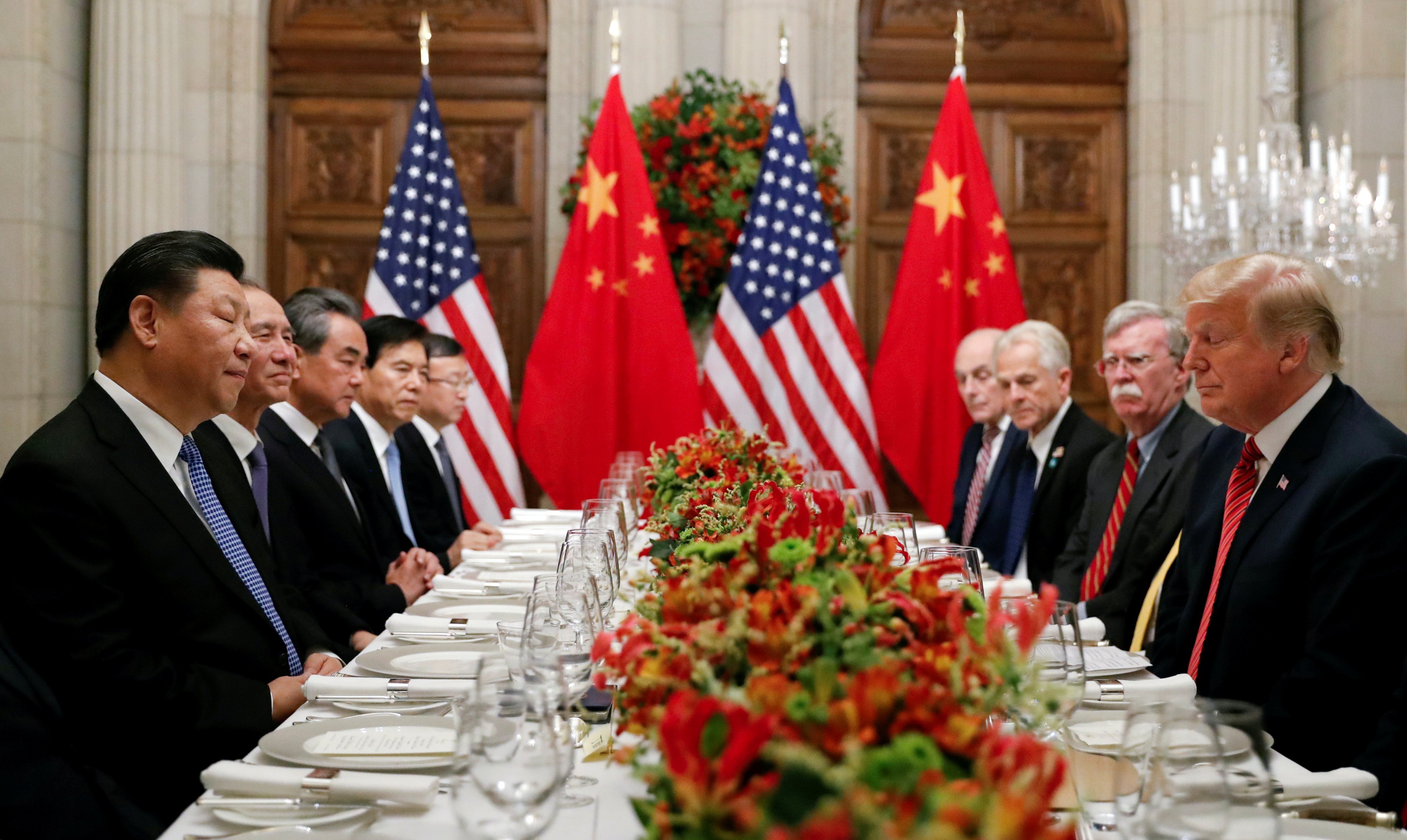While the recent capitulation by President Xi Jinping has sparked a thaw in U.S.-China relations, experts contend the relationship between the two countries is forever changed.
The G-20 Summit marked a big win for President Donald Trump. After a two-and-a-half hour discussion Saturday, Chinese leaders agreed to dramatically increase purchases of U.S. agricultural, energy and industrial products. Additionally, China will further negotiate with its U.S. counterparts on intellectual property rights and trade secret theft — subjects the international community has long accused China of abusing.
In return, Trump will not move forward with a planned tariff increase on Chinese goods. The White House had slapped a 10 percent tariff on billions of dollars worth of Chinese imports in September, and the president had previously vowed to increase this rate to 25 percent. Instead, the administration is postponing the tariff increase for 90 days while U.S. and Chinese negotiators hammer out specifics in their new trade agreement.
The three-month negotiation could signal the end of the U.S-China trade war, but businesses on both sides of the Pacific are making longterm adjustments.
“Markets should be happy, in that the worst is postponed. But I don’t see the West ever going back to business as usual with China. Too many genies have been let out of bottles,” Fraser Howie, the author of “Red Capitalism,” a book detailing China’s financial rise, wrote to The Washington Post.
Howie is not the only one who believes permanent change has been ushered.
“Both sides have set in motion policies that won’t be up for negotiation. So it’s not realistic to expect a return to the status quo,” stated Wendy Cutler, a former American trade negotiator. “We are in a new world.”

U.S. President Donald Trump, U.S. Secretary of State Mike Pompeo, U.S. President Donald Trump’s national security adviser John Bolton and Chinese President Xi Jinping attend a working dinner after the G20 leaders summit in Buenos Aires, Argentina December 1, 2018. REUTERS/Kevin Lamarque
For years, American manufacturers relied on low-wage workers in China to make a growing number of products to be sold in U.S. markets. The Communist country returned the favor by investing over $140 billion into the U.S. economy since 2000. However, after a year of intense rhetoric and trade barbs, U.S. companies are reconsidering their dependence on Chinese factories. At the same time, Chinese government officials are spearheading efforts to develop domestic sources within their own borders. (RELATED: Trump Celebrates As Trade Tensions Appear To Pause With China)
While U.S.-China trade relations might become permanently altered, the administration contends Trump’s tough stance is producing results.
“This was an amazing and productive meeting with unlimited possibilities for both the United States and China. It is my great honor to be working with President Xi,” Trump said in a statement Saturday.
The president also announced Sunday that China agreed to reduce tariffs on U.S. cars exported into the country.
Follow Jason on Twitter.
All content created by the Daily Caller News Foundation, an independent and nonpartisan newswire service, is available without charge to any legitimate news publisher that can provide a large audience. All republished articles must include our logo, our reporter’s byline and their DCNF affiliation. For any questions about our guidelines or partnering with us, please contact licensing@dailycallernewsfoundation.org.


